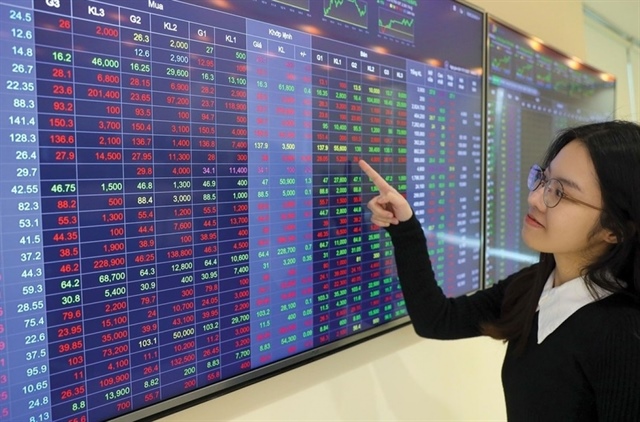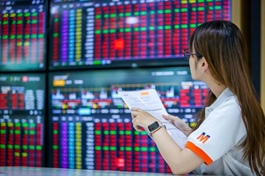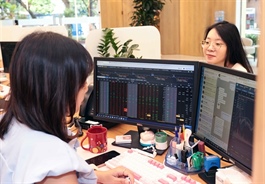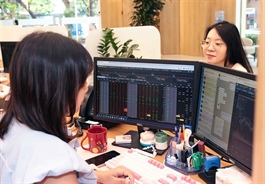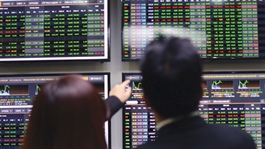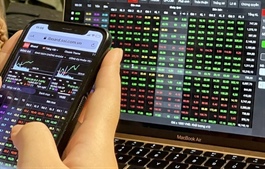Investment funds seize opportunities amid market correction
Investment funds seize opportunities amid market correction
While short-term fluctuations will undoubtedly impact fund performance, experts advise investors against attempting to trade mutual funds for quick profits.
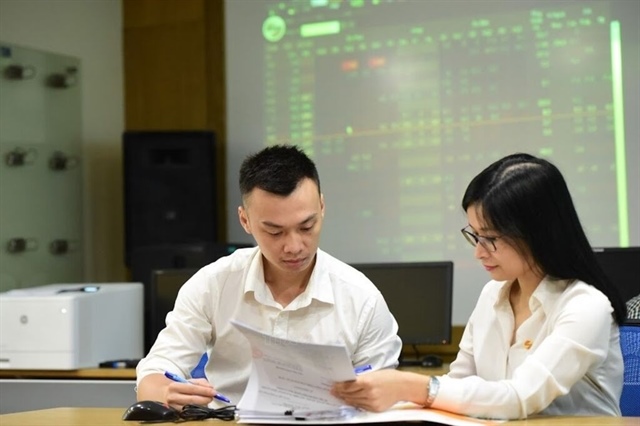
Investors at a trading floor of a securities firm. — VNA/VNS Photo |
As the Vietnamese stock market experiences significant volatility, many mutual fund managers are grappling with uncertainty and considering loss-cutting measures. However, fund managers are capitalising on this market downturn to strategically bottom fish in undervalued stocks with solid fundamentals.
The recent market adjustments have presented a unique opportunity. Following the announcement by US President Donald Trump regarding widespread tariffs, the Vietnamese stock market reacted sharply, with many stocks plummeting by 14 per cent to 30 per cent within just a few trading sessions.
This sudden decline affected even the strongest performers, including those within the VN30 index, which tracks the 30 biggest stocks in terms of market capitalisation.
For instance, VinaCapital’s trio of mutual funds: VEOF, VESAF and VDEF, once celebrated for their robust performance in 2024, now find themselves in negative territory.
According to Fmarket data, as of April 16, these funds reported investment returns of -12.94 per cent, -12.96 per cent, and -13.55 per cent, respectively.
Investors who entered the mutual fund market during a period of strong growth in 2024 have witnessed substantial declines in their accounts, often down by 20 per cent to 30 per cent.
This volatility has left individual investors feeling anxious and questioning their strategies.
Unlike the fast-paced nature of direct stock trading, mutual fund transactions typically occur just one or two days a week, leading to delays in execution and a sense of helplessness during market fluctuations. This lack of immediacy can prompt hasty decisions, such as selling fund shares at inopportune times.
Fund investors must recognise that withdrawing capital is not immediate. They can only place sell orders and wait for the next trading day to see their transactions executed at that day's price, not the price at the moment the order was placed. This delayed response can be particularly frustrating during sudden market downturns.
In response to the recent market shocks, fund managers are reassuring investors and clarifying their investment strategies during these turbulent times.
They argue that, despite the adverse effects of US tariffs, this scenario presents an attractive opportunity for long-term investors.
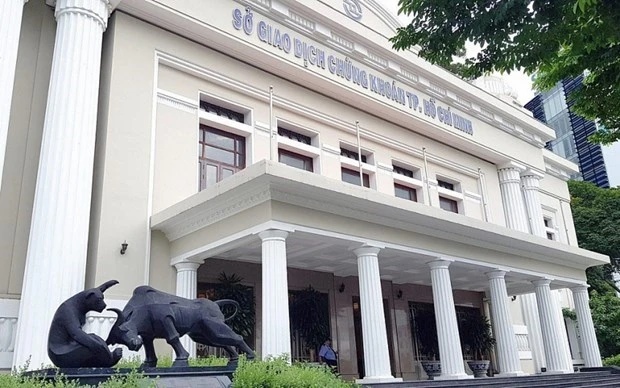
Investors at a trading floor of a securities firm. — VNA/VNS Photo |
The VN-Index is currently trading at a price-to-earnings (P/E) ratio of 11.6, approximately 25 per cent lower than the average P/E of 15.5 from 2016 to the present. Such a valuation suggests that the market is currently underpriced, particularly when compared to the P/E ratios during the US - China trade war, which fluctuated between 16 and 20.
Dragon Capital has expressed optimism regarding the Vietnamese stock market's medium to long-term prospects.
Given the expected earnings for 2025, the P/E and price-to-book (P/B) ratios are projected to reach their lowest levels in a decade.
The recent sell-off creates opportunities for fund managers to acquire stocks with strong fundamentals at appealing valuations, the CFA and Director of Macroeconomic Analysis and Market Research at VinaCapital, Michael Kokalari, told tinnhanhchungkhoan.vn.
Similarly, Vietcombank Fund Management (VCBF) notes that several quality stocks are now trading near their one to three-year lows. The fund management team will maintain a cautious investment strategy, focusing on companies with sustainable business models that are less vulnerable to tariff risks, thereby optimising the performance of VCBF's open-end funds.
While short-term fluctuations will undoubtedly impact fund performance, experts advise investors against attempting to trade mutual funds for quick profits.
Instead, they should adopt a long-term investment perspective. Market volatility is inherent to stock trading, with stock values influenced by unexpected news, macroeconomic policy changes or shifts in investor sentiment. However, over the long term, the market remains undervalued, particularly as Việt Nam maintains a stable macroeconomic foundation.
Historically, the stock market has endured several intense fluctuations over the past five years, influenced by factors such as the COVID-19 pandemic and global economic concerns.
Yet, the VN-Index has averaged an annual growth rate of 13.82 per cent. During this period, many mutual funds have reported impressive five-year average returns.
Leading the pack is the VESAF fund, boasting an annual return of 26.45 per cent, followed by SSI-SCA at 25.07 per cent and VEOF at 22.9 per cent, all significantly outperforming the VN-Index's growth.
In instances of sharp market declines, such as the 31 per cent drop experienced by VCBF-BCF in Q1 2020, the fund still managed to finish the year with a 17 per cent increase. This resilience highlights the importance of prioritising long-term capital preservation and avoiding impulsive decisions during downturns.
- 09:20 24/04/2025





